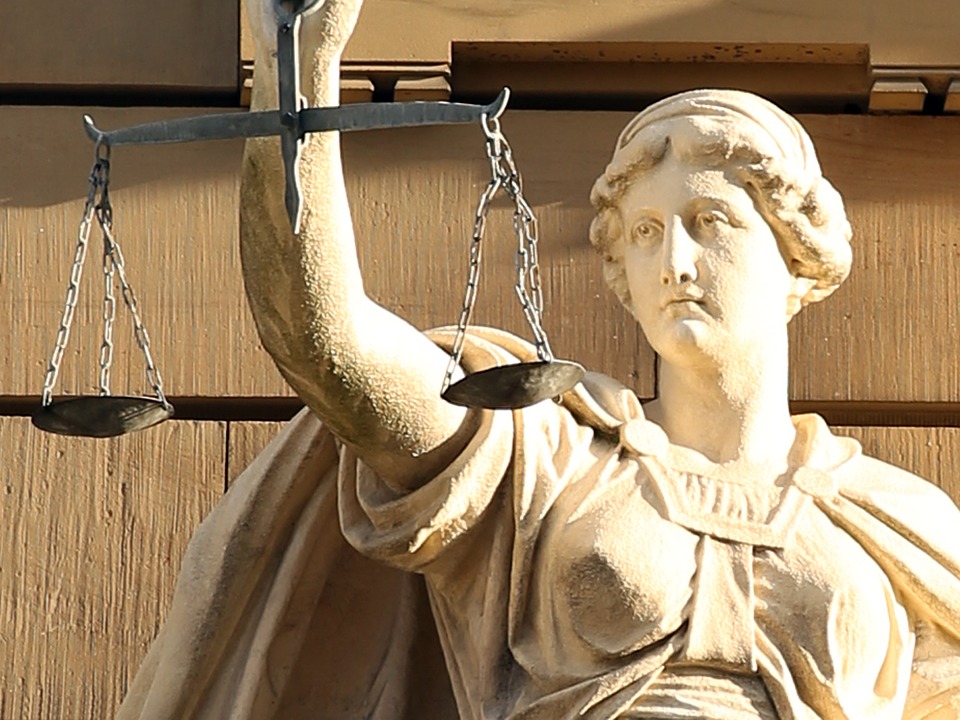
The New Civil Procedure Rules Explained
April 18, 2013
Books Every Lawyer Should Have in Their Library
May 1, 2013Misconduct in public office is an offence at common law triable only on indictment. It carries a maximum sentence of life imprisonment. It is an offence confined to those who are public office holders and is committed when the office holder acts (or fails to act) in a way that constitutes a breach of the duties of that office.
A historical background
The crime of misconduct in a public office is said to date back to the case of R v Rembridge (1783) 3 Doug 327. The defendant in this case was an accountant in the office of the Receiver and Paymaster General of the Forces and was accused of corruptly concealing from his superior his knowledge that certain sums of money had been omitted in the final accounts. Lord Mansfield CJ’s judgment defined the crime of misconduct as involving two principles:
…first, that a man accepting an office of trust concerning the public, especially if attended with profit, is answerable criminally to the King for misbehaviour in his office; this is true, by whomever and in whatever way the officer is appointed… Secondly, where there is a breach of trust, fraud or imposition, in a matter concerning the public, though as between individuals it would be actionable, yet as between the King and the subject it is indictable. That such should be the rule is essential to the existence of the country.[1]
However, what is difficult to determine is whether ‘misbehaviour in his office’ embraces a wide variety of misconduct for this common law crime which can further complicate its definition. Essentially, the crime is where a person, having a public duty entrusted to him, wilfully neglects to carry out that duty (nonfeasance) or wilfully abuses it for some improper motive (misfeasance). However, due to the elements of the crime being so uncertain, there should also be consideration of alternative crimes that could come under the definition.
The offence today
In Attorney General’s Reference (No. 3 of 2003) [2004] EWCA Crim 868, the misconduct charges alleged that each defendant ‘misconducted himself whilst serving as a police officer, by wilfully failing to take reasonable and proper care of [A], an arrested person in police custody’.[2] The Attorney-General sought the opinion of the court on the following questions:
- What are the ingredients of the common law offence of misconduct in a public office?
- In particular is it necessary, in proceedings for an offence of misconduct in a public office, for the prosecution to prove ‘bad faith’ and, if so, what does faith mean in this context?[3]
The court summarised the required elements and stated that the offence is committed when:
- A public officer, acting as such,
- Wilfully neglects to perform his duty and/or wilfully misconducts himself,
- To such a degree as to amount to an abuse of the public’s trust in the office holder,
- Without reasonable excuse or justification.[4]
Bearing these elements in mind, it has been made clear that the offence of misconduct in a public office is a crime defined by conduct as opposed to results, which in that case means that any harmful result only informs the necessary degree of seriousness — which is a question for the jury.
The case of Christopher Galley in 2008 was given a great amount of publicity. Mr Galley, a Home Office civil servant in the office of the Home Secretary, was arrested on suspicion of misconduct in public office for allegedly passing confidential and restricted documents to Damien Green. Mr Green was also arrested on suspicion of conspiring to commit, and being an accessory to, the alleged offence by Mr Galley. The Director of Public Prosecutions, Keir Starmer QC, announced a year later that he had decided not to prosecute Mr Galley and Mr Green because, whilst there was damage to the Home Office’s arrangements for handling such documents, there needed to be additional damage — such as a threat to national security — and without that damage there was no realistic prospect of conviction.[5]
As highlighted by David Lusty,[6] what is peculiar about Mr Starmer’s decision is the fact that he stated that Mr Galley seriously breached the trust placed in him by the public. In doing so, he had effectively concluded that the third element of the offence was satisfied and that his conduct was sufficiently serious to pass the threshold for criminal conviction. Nonetheless, he then proceeded on the basis that damage was the determinative issue in the case. Is there a way in fact to measure this high threshold before criminal proceedings can properly be brought for misconduct in public office?
Despite the court in Attorney-General’s Reference (No. 3 of 2003) delivering a modern twist on the definition of the misconduct offence, there has been continued difficulty in deciding whether cases should be prosecuted based on this definition. The issues are that it provides inadequate certainty for public officials to judge their future conduct, as well as the legal intricacies involved for lay juries in these type of trials.
This was seen in the case of R v W [2010] EWCA Crim 372,[7] where the Court of Appeal exacerbated the difficulty of the common law misconduct offence by adding the following actions to the definition:
- Frauds and deceits (fraud in office)
- Wilful excesses of official authority (malfeasance)
- The intentional infliction of bodily harm, imprisonment or other injury upon a person (oppression).[8]
Subsequently, these facts have shown how the misconduct offence has gone beyond its original rationale of punishing serious nonfeasance or misfeasance.
Proposals for a statutory offence
It has been commented that misconduct in a public office is one of those common law offences that cries out for an authoritative restatement, preferably after a thorough examination by the Law Commission.[9] The Law Commission has in fact undertaken this project and is due to produce a final report in summer 2016:
It will involve the simplification, clarification and codification of a common law offence. It will also ensure that the law takes into account practices whereby traditionally public functions are discharged by private individuals and volunteers to ensure that the scope of the offence is neither over- nor under-inclusive.[10]
Having recommended for there to be a newly developed statutory offence in 1997, the Committee on Standards in Public Life considered the in depth analyses and stated the following:
…the unifying factor of the common law cases appears to be the existence of some improper, dishonest or oppressive motive in the exercise or refusal to exercise some public function, rather than a mere abuse of power. There are few prosecutions, suggesting that action is taken only when misconduct is particularly gross. The advantage of creating a statutory offence of misuse of public office would be that some clearer indication could be given in the statute of the circumstances in which an offence might occur. The limits should not have to be drawn by the jury unguided.[11]
On the one hand, it has been argued that there is a necessary duty to produce a comprehensive definition of the misconduct offence in public office. On the other hand, however, there are those sceptics who feel that the common law will fundamentally ensure the availability of the offence, whereas a statutory definition may well be drafted so as to be more favourable to the executive.
Conclusion
The misconduct offence is regarded as an extremely severe offence — it is triable only on indictment and it is punished with a maximum of life imprisonment. Having recognised this crucial matter, the Crown Prosecution Service has made it clear that the misconduct offence should only be used for serious examples of misconduct, where there is no appropriate statutory offence that would adequately describe the nature of the misconduct or give the court sufficient sentencing powers. Finally, it has been argued that the misconduct offence has no place in the modern criminal law since it has a tendency to spread in all directions and, unless it is kept carefully in check, it will take over any and every case.[12] However, can it be argued that it is better left to the common law to decide on such matters?
[1] R v Rembridge (1783) 3 Doug 327 at 332
[2] Attorney General’s Reference (No. 3 of 2003) [2004] EWCA Crim 868 at [1]
[3] Ibid, at [2]
[4] Ibid, at [61] and [63]
[5] Crown Prosecution Service, ‘CPS Advises Metropolitan Police No Prosecution of Damian Green or Christopher Galley’, (Press Release, 16 April 2009) (https://www.cps.gov.uk/news/latest_news/122_09/) accessed 11 April 2013
[6] David Lusty, ‘Misconduct in Public Office’ (2009) 173 JPN 437
[7] R v W [2010] EWCA Crim 372
[8] Ibid, at [8]
[9] Andrew Ashworth ‘Misconduct in public office – ingredients of offence: misuse of public funds’ (2010) Crim LR 779, 780
[10] Law Commission, ‘Misconduct in Public Office’ (Law Commission) (http://lawcommission.justice.gov.uk/areas/misconduct.htm) accessed 11 April 2013
[11] CSPL, Misuse of Public Office: A Consultation Paper 1997 (Standard Note, SN/PC/04909, 1999)
[12] J.R Spencer, ‘Policemen behaving badly – The abuse of Misconduct in Office’ [2010] 69 Camb LJ 423 [/tab]





